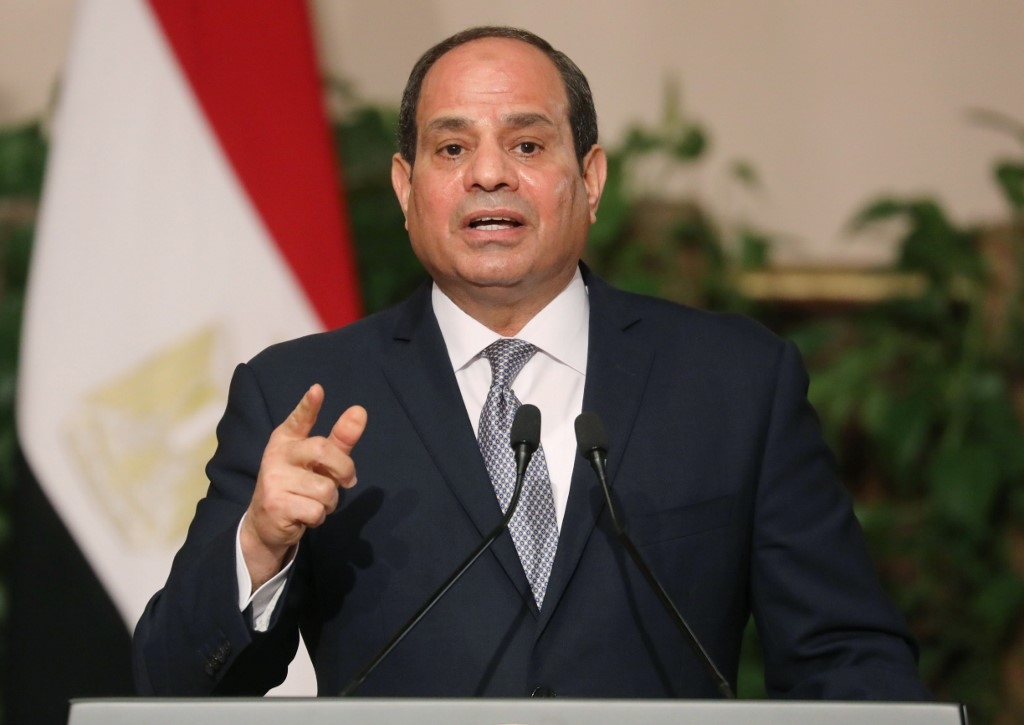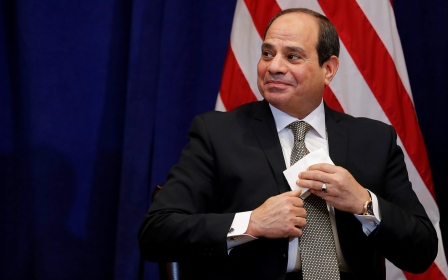Egypt parliament set to vote on amendments to extend Sisi's rule until 2030

The legislative committee in the Egyptian parliament voted Sunday to extend President Abdel Fattah el-Sisi’s current term by two more years and to allow him to run for one more six-year term, backtracking on previous proposals that would have allowed Sisi to run for two more terms as president.
Parliament speaker Ali Abdelal said a final parliamentary vote would take place on Tuesday, while local media reported that a referendum on the amendments would start from 20 April following parliamentary approval.
The 596-member parliament is dominated by Sisi supporters, leading many to believe the amendment will pass on Tuesday.
A previous proposal to change the constitution included an amendment to Article 140 to allow the current president to run for two six-year terms after the end of his current one in 2022 - effectively paving the way for Sisi to rule until 2034.
On Sunday, Abdelal said that the new changes came in response to “popular dialogue” sessions over the past two months.
New MEE newsletter: Jerusalem Dispatch
Sign up to get the latest insights and analysis on Israel-Palestine, alongside Turkey Unpacked and other MEE newsletters
“We have written them in a way that would satisfy everyone,” he said.
Abdelal, however, added that a new constitution should be drafted within the next decade - signalling that Sisi may have another chance to extend his term beyond 2030.
“We need a new constitution; it is impossible not to have an entirely new constitution within the next 10 years,” Abdelal said.
Sunday’s vote came against the backdrop of the ouster of two presidents in the region: Omar al-Bashir of Sudan and Abdelaziz Bouteflika of Algeria, after nationwide protests against their authoritarian rules.
It also comes as the Egyptian government has intensified its crackdown on opposition to the amendments, with an online petition blocked on the day of its launch.
According to its founders, the "Batel" petition (meaning "void" in Arabic) seeks to rally support against a string of constitutional amendments that would extend Sisi's rule and subjugate the judiciary to his control.
It has so far attracted more than 215,000 votes, despite governmental efforts to block it.
Opponents to the amendments say they seek to perpetuate Sisi’s autocratic rule and would effectively end the independence of the Egyptian judiciary and enshrine military rule.
Supporters say the amendments are necessary to give Sisi more time to implement his platform, including major development projects and economic reforms.
Sisi is a former minister of defence who came to power in 2013 after leading a coup against his predecessor Mohamed Morsi, Egypt's first freely elected civilian president.
Since his highly contested election in 2014, Sisi has overseen what independent groups have described as the worst crackdown on human rights in Egypt's modern history, with the detention of at least 60,000 political prisoners and a virtual ban on protests.
Sisi's opponents are concerned that his government will manipulate the election to ensure that the referendum passes.
Middle East Eye delivers independent and unrivalled coverage and analysis of the Middle East, North Africa and beyond. To learn more about republishing this content and the associated fees, please fill out this form. More about MEE can be found here.




